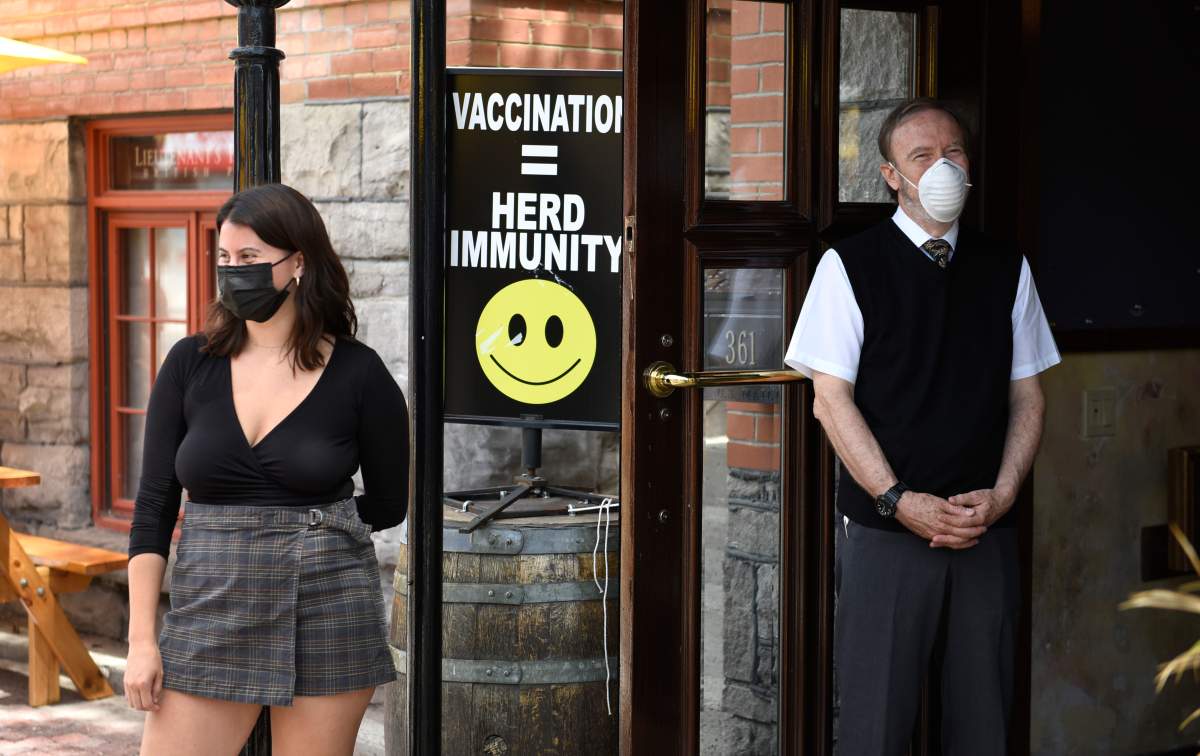Alberta has recorded 90 new cases of COVID-19 over the last three days, however, no new deaths linked to the disease have been reported since July 8.

Alberta Health released COVID-19 data online Monday, which shows 31 new cases were reported on Friday, 29 on Saturday and 30 on Sunday.
Active cases, hospitalizations and intensive care admissions related to COVID-19 all continue to fall.
On Monday afternoon, there were 624 active cases of COVID-19 in Alberta. Of those, 316 are in the Calgary zone, 118 are in the Edmonton zone, 106 are in the North zone, 59 are in the Central zone, 22 are in the South zone and three are not connected to any zone.
Hospitalizations have fallen over the weekend, from 126 people Friday to 112 people on Monday. Of those, 34 people are being treated in intensive care, a slight drop from 35 people on Friday.
The vaccination rate in Alberta also continues to inch forward, with 74.1 per cent of Albertans 12 and older having received one dose of vaccine.
As of July 11, 55.3 per cent of Alberta’s eligible population is fully vaccinated with two doses.
On Monday, Premier Jason Kenney said he hopes the province will reach an 80-per-cent vaccination rate, but admitted there’s likely about 10 per cent of the population that will never be vaccinated under any circumstances.

Get weekly health news
“It’s going to take a little while. We think that the people who are most likely to get vaccinated but who have not yet done so tend to be younger, working adults between about 20 and 40 and they’re just busy,” the premier said.
“They’re healthy, they probably don’t have a family doctor and they don’t have much of a connection with the health-care system. We’re going to reach out to them in a very concentrated way.”
Also Monday, the World Health Organization’s chief scientist advised against people mixing and matching COVID-19 vaccines from different manufacturers, calling it a “dangerous trend” since there was little data available about the health impact.
“It’s a little bit of a dangerous trend here. We are in a data-free, evidence-free zone as far as mix and match,” Soumya Swaminathan told an online briefing.
“It will be a chaotic situation in countries if citizens start deciding when and who will be taking a second, a third and a fourth dose.”

Alberta has been mixing and matching COVID-19 vaccines and in a statement, Alberta Health spokesperson Tom McMillan said the province’s approach is in line with the rest of Canada and many other jurisdictions around the world, including the United Kingdom and Germany.
“Both the National Advisory Committee on Immunization and Alberta’s own advisory committee have advised that vaccines can be used interchangeably for second doses,” McMillan said.
“There is no evidence at this time to suggest that mixing vaccines increases health risks or decreases protection. In fact, some emerging evidence indicates that mixing vaccine types may increase protection.”
McMillan went on to say that all Albertans who received different vaccines for their first and second doses should feel great knowing they are fully immunized against COVID-19.
“All Albertans continue to have a choice on the type of first and second dose that they choose to receive. With COVID-19 still a significant health threat around the world, we continue to strongly recommend that everyone book the first appointment available, regardless of the type of vaccine.”
Every Albertan 12 and older is eligible to be vaccinated. More information on how to book an appointment can be found online.









Comments